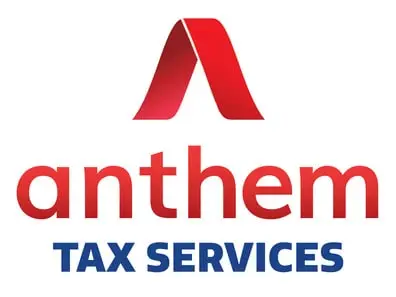
If you wonder whether or not the IRS can garnish or seize retirement funds because of back taxes, you may be worried if you have not paid your taxes for years. Being a retiree does not exempt you from the IRS coming to collect what you owe.
However, there are limits to what they can do, and you need to know these limitations. Understanding these limitations will assist you in deciding how you will pay the IRS. It will also help you know your rights? should they contact you and ask you to pay what you owe.
What You Need to Know About Garnishing of Your Pension?
The IRS can and does attempt to garnish funds from a retirement account when the account owner owes back taxes. The process of attempting to garnish a retirement account is known as a levy.
Before the IRS can seize any of your money, they must send you a written notice telling you that you owe taxes. They need to tell you the amount you owe, and the years you are liable for payment.
When you fail to respond to this notice, the IRS will then send another notice. The second notice is a final notice, and it will outline their intention to levy your assets.
What Is a Tax Levy?
Simply put,a tax levy is the ability to seize your property to satisfy your tax debt. The IRS can either issue a lien or a levy against a person. If a lien is issued against you a legal claim has been made against your property by the IRS to secure payment of your tax debt. When a levy is issued against you, however, the IRS has the intention to take the property from you to pay off the tax debt.
The Internal Revenue Service has the authority to issue levies to collect delinquent tax payments as a result of the Internal Revenue Code(IRC). According to the code, any taxpayer’s property may be levied unless the IRS exempts that property from being levied.
Needless to say, to prevent a levy from being issued against you and your personal assets, it is best to respond to the IRS when they send you the first notice.
How to Protect Your Retirement Fund?
If you want to protect your retirement funds from the IRS, you have two options; the first one is simple, all you have to do is pay off all your tax debt. You can pay it off in its entirety, or you can do so via a payment plan. You may also submit an offer in compromise to the IRS.
An offer in compromise will allow you to pay less than the amount that you owe. You may be able to get this offer approved if you have a legitimate reason. If you cannot afford to pay the total amount in taxes or if doing so will create financial hardship, the IRS will consider this when demanding payment.
The IRS will consider your expenses, retirement income, and asset equity to determine whether or not they should approve an offer in compromise from you. When accepted by the IRS, the compromise debt relief offer will be accepted as full payment for the taxes that you owe.
The second way to protect your retirement funds from being garnished by the IRS is to ensure that you do not have access to the money. If you don’t have access to any of the money, the IRS will also not access your finances either.
If you do not have access to the funds in your retirement account, the IRS will have to look for other ways to recoup the money you owe them.
Their other options will be to go through your personal assets and any wages that you have.
The IRS may try to seize personal assets such as clothing, furniture, educational books. Nothing that you have that is valuable will be off-limits. If you own a business, the IRS may seize your professional supplies and equipment to get the money you owe. They may also try to seize your home to get paid for your taxes.
In short, it is the IRS’s job to collect taxes, and they will stop at nothing to ensure that they do so. If you have difficulty paying your taxes, it’s best to acknowledge any notice that they send you and speak to one of our tax debt relief specialists to setup your payment plan.
Will the IRS Really Go After My Retirement Funds?
Suppose you are like most people, then the IRS will not go after your retirement funds. This is because retirement funds are simply too hard to access. However, there are situations in which the IRS will deliberately press the issue of going after your retirement funds.
If you show flagrant disregard for paying your taxes, the IRS will try to seize your retirement funds.
What constitutes flagrant disregard?
If you have committed fraud, make contributions to a retirement account while not paying your taxes, or have deliberately tried to evade taxes, the IRS will try to seize your retirement funds even if it would be difficult to access it.
The IRS and You
You now know that the IRS can try to seize your assets and, in some cases, your retirement funds if you do not pay your taxes. If you cannot pay your taxes, it is best to contact the tax debt relief professionals at Anthem Tax Services to help you stop a garnishment from the IRS.
You can then see if you can agree to a payment plan with the IRS. This is best because eventually, the IRS will catch up with you, so it is better to be upfront with them from the beginning and avoid the legalities that can ensue when you do not pay your taxes.
If you wonder whether or not the IRS can garnish or seize retirement funds because of back taxes, you may be worried if you have not paid your taxes for years. Being a retiree does not exempt you from the IRS coming to collect what you owe.
However, there are limits to what they can do, and you need to know these limitations. Understanding these limitations will assist you in deciding how you will pay the IRS. It will also help you know your rights? should they contact you and ask you to pay what you owe.
What You Need to Know About Garnishing of Your Pension?
The IRS can and does attempt to garnish funds from a retirement account when the account owner owes back taxes. The process of attempting to garnish a retirement account is known as a levy.
Before the IRS can seize any of your money, they must send you a written notice telling you that you owe taxes. They need to tell you the amount you owe, and the years you are liable for payment.
When you fail to respond to this notice, the IRS will then send another notice. The second notice is a final notice, and it will outline their intention to levy your assets.
What Is a Tax Levy?
Simply put, a tax levy is the ability to seize your property to satisfy your tax debt. The IRS can either issue a lien or a levy against a person. If a lien is issued against you a legal claim has been made against your property by the IRS to secure payment of your tax debt. When a levy is issued against you, however, the IRS has the intention to take the property from you to pay off the tax debt.
The Internal Revenue Service has the authority to issue levies to collect delinquent tax payments as a result of the Internal Revenue Code(IRC). According to the code, any taxpayer’s property may be levied unless the IRS exempts that property from being levied.
Needless to say, to prevent a levy from being issued against you and your personal assets, it is best to respond to the IRS when they send you the first notice.
How to Protect Your Retirement Fund?
If you want to protect your retirement funds from the IRS, you have two options; the first one is simple, all you have to do is pay off all your tax debt. You can pay it off in its entirety, or you can do so via a payment plan. You may also submit an offer in compromise to the IRS.
An offer in compromise will allow you to pay less than the amount that you owe. You may be able to get this offer approved if you have a legitimate reason. If you cannot afford to pay the total amount in taxes or if doing so will create financial hardship, the IRS will consider this when demanding payment.
The IRS will consider your expenses, retirement income, and asset equity to determine whether or not they should approve an offer in compromise from you. When accepted by the IRS, the compromise debt relief offer will be accepted as full payment for the taxes that you owe.
The second way to protect your retirement funds from being garnished by the IRS is to ensure that you do not have access to the money. If you don’t have access to any of the money, the IRS will also not access your finances either.
If you do not have access to the funds in your retirement account, the IRS will have to look for other ways to recoup the money you owe them.
Their other options will be to go through your personal assets and any wages that you have.
The IRS may try to seize personal assets such as clothing, furniture, educational books. Nothing that you have that is valuable will be off-limits. If you own a business, the IRS may seize your professional supplies and equipment to get the money you owe. They may also try to seize your home to get paid for your taxes.
In short, it is the IRS’s job to collect taxes, and they will stop at nothing to ensure that they do so. If you have difficulty paying your taxes, it’s best to acknowledge any notice that they send you and speak to one of our tax debt relief specialists to setup your payment plan.
Will the IRS Really Go After My Retirement Funds?
Suppose you are like most people, then the IRS will not go after your retirement funds. This is because retirement funds are simply too hard to access. However, there are situations in which the IRS will deliberately press the issue of going after your retirement funds.
If you show flagrant disregard for paying your taxes, the IRS will try to seize your retirement funds.
What constitutes flagrant disregard?
If you have committed fraud, make contributions to a retirement account while not paying your taxes, or have deliberately tried to evade taxes, the IRS will try to seize your retirement funds even if it would be difficult to access it.
The IRS and You
You now know that the IRS can try to seize your assets and, in some cases, your retirement funds if you do not pay your taxes. If you cannot pay your taxes, it is best to contact the tax debt relief professionals at Anthem Tax Services to help you stop a garnishment from the IRS.
You can then see if you can agree to a payment plan with the IRS. This is best because eventually, the IRS will catch up with you, so it is better to be upfront with them from the beginning and avoid the legalities that can ensue when you do not pay your taxes.

